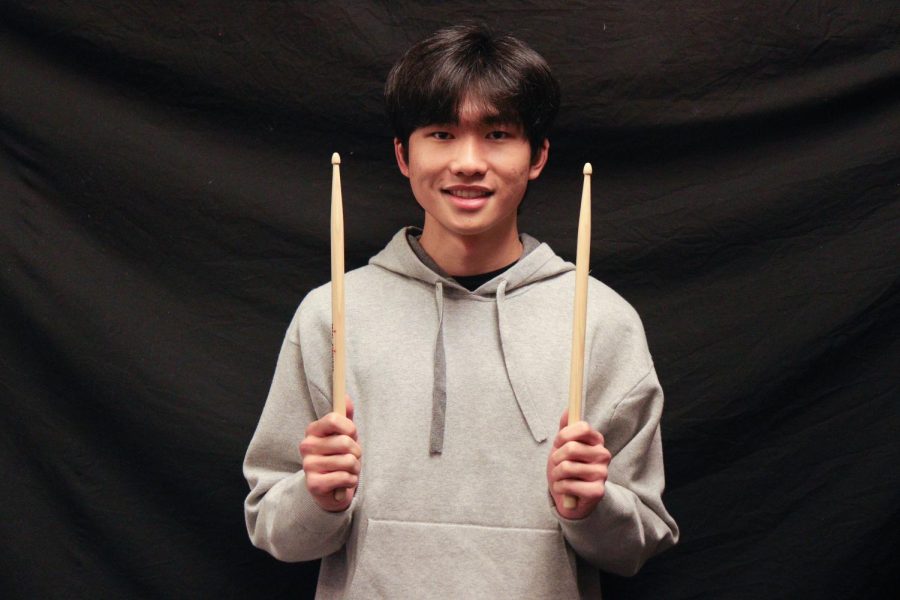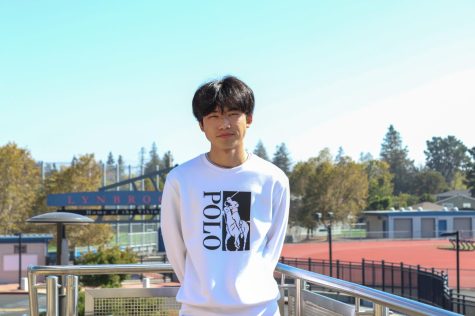Drumming my troubles away
December 12, 2022
Coming home after a long day, I collapse on my bed, thinking of what to do to let off steam. It doesn’t take long before I head over to my garage. With the flick of a switch, a stark light illuminates the sleek outline of my drum kit in the corner of the room, and I sit down behind it, closing my eyes as I slip on headphones. Just minutes later, adrenaline pumps through my body and tinnitus pierces my ears as I hammer the drums relentlessly, dripping with sweat while wood chips flake off my drumsticks and cymbals crash all around me. For me, drumming is the perfect release of emotion and unlikely source of relaxation.
My bond with musical expression hasn’t always been so personal. Like many others, I was encouraged by my family to play an instrument in hopes of fostering talent as a child. The first instrument I learned was piano. Yet through my five years of experience, I never truly enjoyed playing. Despite also trying out violin and classical guitar, I noticed a recurring issue — although I was able to learn the basics, I was always unmotivated so playing felt like a chore.
I was highly skeptical when introduced to the drums, believing they wouldn’t be any different from instruments I’d already attempted. This doubt only grew when I began playing, as I had to learn fairly complex technique and theory in order to even play rudimentary rhythms.
However, once I conquered the fundamentals, I decided the best way to learn was by listening and playing along to songs freely, unrestrained by forced practice chasing prestige.
After months of continuous practice, my technical skill and understanding of music theory never evolved past basics I learned as a beginner — even now, I can still barely read sheet music. Yet the liberation I felt by being able to play in accordance with my actual musical interests gave me the drive I had always lacked with other instruments, allowing me to improve at an unprecedented pace.
Though I have played drums for several years now, my passion hasn’t wavered; the discovery of endless genres and styles has constantly renewed my appetite.
Nonetheless, my drumming career hasn’t always been so carefree; the biggest roadblock in my confidence occurred junior year, when I was invited to perform as a guest drummer with a chamber orchestra. Despite lacking knowledge of music theory, I had to compose the drumming parts and integrate them without overpowering others’ sound, all while maintaining impeccable time-count. I decided to simply focus on letting my playing come through naturally, unburdened by concerns for sophistication. I put faith in my long-practiced approach to play by feel, which better complemented the melodic ebbs and flows of the orchestra.
Music doesn’t always stem from impeccable skill and technique; its core is rooted in soul, or expression of self and emotion. One does not have to be incredibly skilled to convey passion through an instrument. I’m proud that I have a connection with drumming while simultaneously living and enjoying the music I’m playing.
Even if I may lack formal technique, I drum because it allows me to explore and express my interests, playing songs with cathartic, deeper significance. I’m glad my approach has been unorthodox. If I’d focused entirely on technique and music theory, I doubt I would’ve come to enjoy drumming as much as I do now — my emotional connection just wouldn’t be the same.




























































